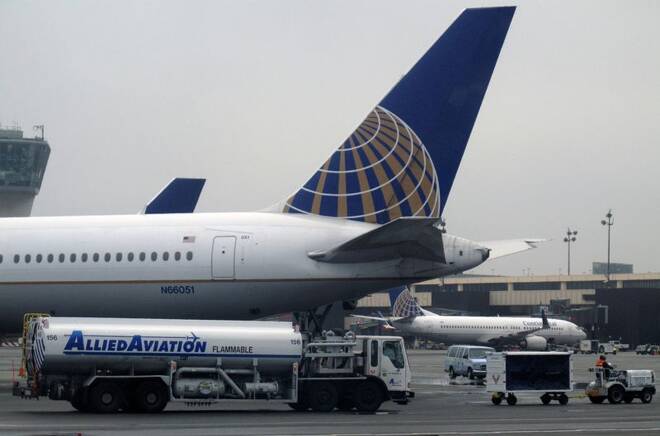Advertisement
Advertisement
Changes to UN aviation emissions deal near approval -officials
By:
By Allison Lampert and David Shepardson MONTREAL, WASHINGTON (Reuters) - Changes to a flagship U.N. aviation emissions agreement are closer to being approved after an airline trade group walked back objections on Wednesday, airline and government officials told Reuters.
By Allison Lampert and David Shepardson
MONTREAL, WASHINGTON (Reuters) – Changes to a flagship U.N. aviation emissions agreement are closer to being approved after an airline trade group walked back objections on Wednesday, airline and government officials told Reuters.
Members of the 193-nation International Civil Aviation Organization (ICAO) are under pressure to reach consensus to curb emissions from global flights at its triennial assembly in Montreal through October 7.
Countries plan to change the baseline of the UN aviation agency’s landmark Carbon Offsetting and Reduction Scheme for International Aviation(CORSIA) and are weighing an industry-backed goal of net zero emissions by 2050.
Airline group IATA’s acceptance of a compromise for CORSIA will help ease it toward approval by the assembly, said Mauricio Ramírez Koppel, a representative of Colombia and chairperson of the climate and environment committee on ICAO’s 36-member governing council.
CORSIA was launched in 2016, and airlines initially pledged to spend billions of dollars to to cap their rising emissions at 2020 levels by purchasing carbon offsets that support environmental projects around the world. CORSIA’s first trial phase began in 2021.
But the program’s 2020 baseline was challenged when air traffic plummeted due to COVID-19. Hard-hit carriers feared higher-than expected offset costs when air travel recovered.
A compromise by countries that would set the baseline at 85% of emissions produced in 2019 was initially challenged by IATA. The group called in a working paper for the baseline to be set at full 2019 levels.
U.S. airlines previously touted IATA’s original baseline proposal to the White House.
IATA has publicly asked for CORSIA to be strengthened. Environmentalists and aviation officials from some countries, however, have argued that a 2019 baseline would be cheaper and allow airlines to pollute freely for longer.
An IATA spokesman said the group’s paper on the baseline was withdrawn and would not comment further, until it could give an explanation to the assembly’s executive committee.
IATA’s earlier position created “challenges,” for the hard-forged compromise, Ramírez Koppel told Reuters.
“We should not entertain anything less than the council deal for 85% of 2019 levels,” said Pedro Piris Cabezas, of Environmental Defense Fund.
IATA’s position “was not helpful” added a European official who said on condition of anonymity that the discussions on the compromise are “almost done.”
Separately, industry trade group Airlines for America, said it is pleased “the ICAO assembly appears to be poised to endorse a long term goal of net-zero by 2050.”
(Reporting By Allison Lampert in Montreal and David Shepardson in Washington; Editing by David Gregorio)
About the Author
Reuterscontributor
Reuters, the news and media division of Thomson Reuters, is the world’s largest international multimedia news provider reaching more than one billion people every day. Reuters provides trusted business, financial, national, and international news to professionals via Thomson Reuters desktops, the world's media organizations, and directly to consumers at Reuters.com and via Reuters TV. Learn more about Thomson Reuters products:
Advertisement
